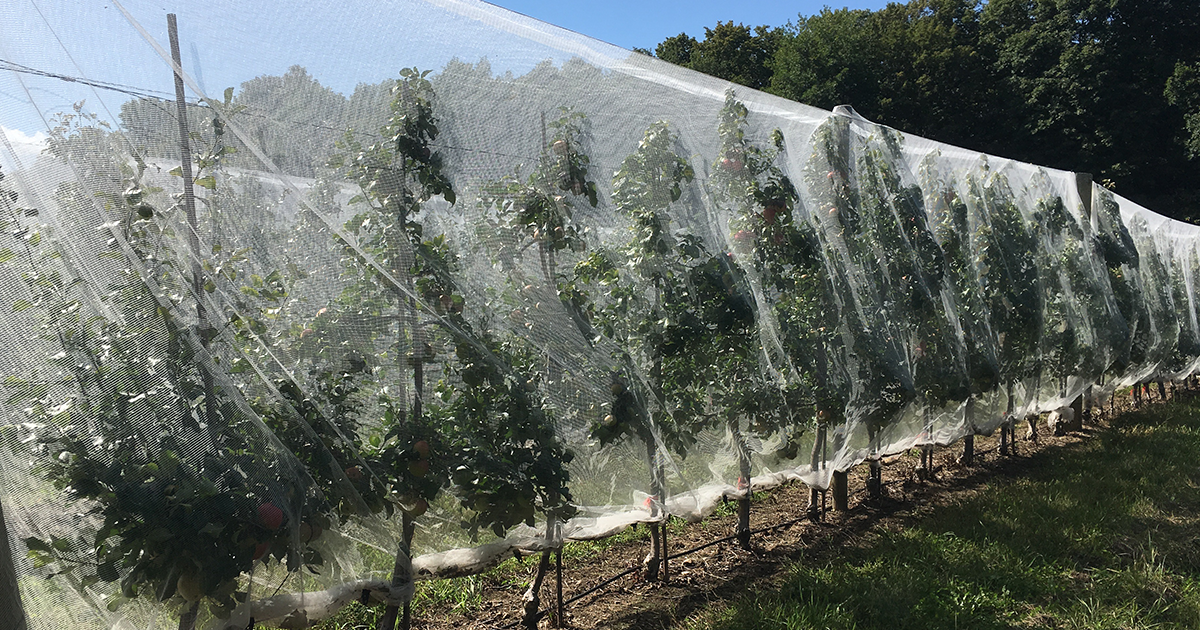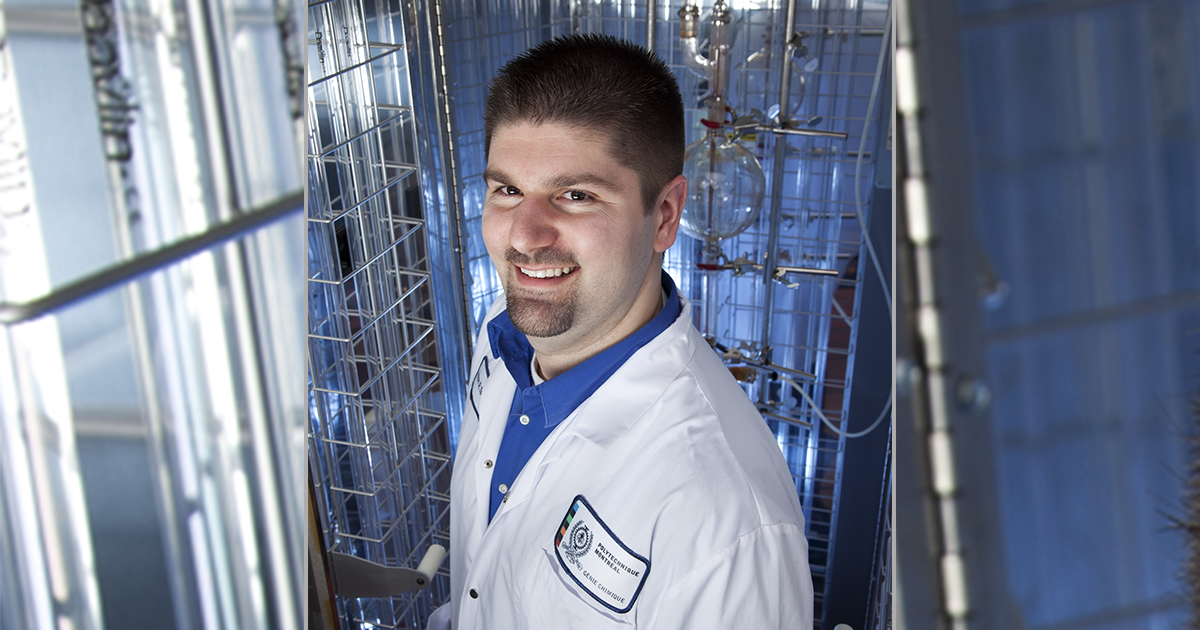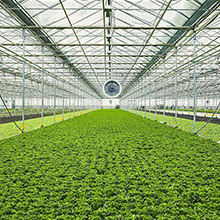Nouvelles
Launch of a project to reduce pesticide use in fruit and vegetable production
Polytechnique Montréal researchers are tackling the development of next-generation exclusion nets for the fruit and vegetable growing industry. Researchers are attempting to ensure that the fruit and vegetable industry uses less pesticides, and also generates a small carbon footprint.

Exclusion nets will be tested in the IRDA experimental orchard located in Mont-Saint-Bruno park, south of Montreal. (Photo: IRDA)
For many years, conventional cultivation fruit and vegetable growers have been using an arsenal of pesticides to keep insects that damage crops at bay. However, in recent years and with the development of new approaches and improved understanding of pesticides' environmental impacts, things have begun to change for the greener.
Take apples for example: an increasing number of growers now rely on mating disruption to interfere with the reproduction behaviours of a specific pest, the codling moth. By saturating orchard air with a pheromone that normally enables males to track down females, apple growers "blind" these insects, rendering them unable to spot their sexual partners - but only chemically speaking, of course. As a result there are fewer eggs - and fewer pests.
Other producers use exclusion nets, which are made of mesh small enough to prevent pests from crossing through them to access the fruit underneath. These nets are placed on apple trees once the flower fertilization period is over.
Bio-based plastic nets
For several years now, Polytechnique Montreal's Associate Professor Jason R. Tavares, (Department of Chemical Engineering) has been working to improve these crop protection nets, in close collaboration with researchers from the Research and Development Institute for the Agri-Environment - IRDA, and McGill University.
Notably, the team has developed unique methodologies to test nets made from bio-based materials derived from biomass rather than petroleum. The team has also changed the behaviour of these bio-sourced materials, in order to provide nets to producers that can be reused for multiple years, and that have a carbon footprint that's close to zero.
Over the next four years, the team will continue to collaborate with the DeNETer project, the name of which is a nod to Ancient Greece's Demeter, Goddess of agriculture and harvests. In collaboration with Quebec company Dubois Agrinovation and French technical textile manufacturer MDB Texinov, researchers will try to develop nets with modified surfaces, altered to change their wettability. They'll also combine these new fibres with emitters coated with bioactive compounds, including pheromones or repellents.
"If this is successful, exclusion nets will become even more effective by combining the 'mechanical' exclusion of insects with repellency or mating disruption. This combination will enable nets to be adapted to the specific type of crop being protected, by targeting specific pests," explains Professor Tavares.

Jason R. Tavares, Associate Professor in the Department of Chemical Engineering.
Tavares' team is tasked with establishing the best parameters to be used to impregnate the molecules on the surface of the transmitters (ie the coatings on protective nets), while ensuring that these molecules are released gradually over the course of a production season. However, it’s a task that requires extreme precision, given that in a natural state, these molecules act in minute doses - on the order of parts per billion (ppb), or even parts per trillion (ppt)! “At these scales, characterization and reproducibility are the biggest challenges we face," notes the researcher.
The McGill University team will contribute to the project via its vast expertise in the synthesis and manipulation of biobased polymers used in the manufacture of nets. Custom-designed nets and transmitters designed by the group will then be tested in the IRDA experimental orchard, located in Mont-Saint-Bruno National Park, south of Montreal.
According to Marie Chantal Chassé, Member of Parliament for Châteauguay and Parliamentary Assistant to the Minister of the Economy and Innovation (Innovation and Entrepreneurship), the advanced materials sector is a growth vector for Québec. “Having myself been trained in materials engineering and having been responsible for innovation projects in the agrifood industry, I'm pleased to see this transatlantic initiative which contributes to increasing the competitiveness of companies and strengthens partnerships between business and research,” she explains.
“The DeNETer project is a great example of collaboration that has led to the development of a highly innovative solution in the agriculture sector. The Government of Québec supports this initiative, since it will promote crop protection, while keeping in mind sustainable and environmentally friendly development.”
$420,000 dollars over 4 years
The project is supported by a research budget of just over $420,000 for four years. It benefits from support from the Natural Sciences and Engineering Research Center of Canada (NSERC), the Ministère de l’Économie et de l’Innovation du Québec (MEI), via PRIMA Québec Advanced Materials Research and Innovation Hub, and the Research Center for High Performance Polymer and Composite Systems - CREPEC. Of note is also the fact that the project will train Postdoctoral Fellow Adya Karthikeyan, doctoral student Darius Klassen, as well as a master's student who is yet to be recruited. Interns and two research professionals will also benefit from working on this project.
Learn more
Professor Jason R. Tavares' expertise
Department of Chemical Engineering website
Press release announcing the project
IRDA experimental orchard page
Gérald Chouinard (IRDA) expertise
Marie-Josée Dumont (McGill University) expertise




